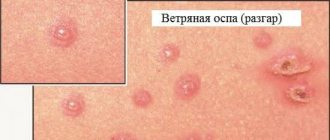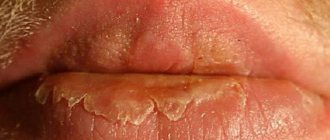How can you get infected with herpes
The content of the article
The disease is caused by the herpes simplex virus (HSV, Herpes simplex virus). Of the eight types of this pathogen, genital lesions are the result of two infectious agents. HSV-2 causes 80% of cases of the disease, and HSV-1 - 20%. There are also combined infections, in which both viral types are to blame.
There is a misconception that herpes on the lips and genitals are completely different diseases. In fact, both types of pathogens often “swap places” during domestic infection and oral sex. And both infections are equally dangerous.
Both types of virus are transmitted:
- For all types of sexual contact - vaginal, oral, anal, during which the virus enters the body through microdamage to the mucous membrane. You can also become infected from a partner who does not have rashes on the genitals or other manifestations of the disease. This condition is possible with strong immunity, when the virus lies low and waits in the wings. A person becomes a carrier of a herpes infection, but does not experience any health problems.
- Through common objects - washcloths, sponges, bed linen, towels. A person with a cold sore caused by the type 1 virus can become a source of genital herpes infection.
- During autoinoculation (self-infection), when the patient transfers the pathogen from the face to the genitals.
- A child becomes infected from a sick mother when the virus penetrates from the vagina into the uterus or transplacentally through the placenta. During childbirth, infection occurs as the newborn passes through the birth canal.
Statistics of hidden and overt forms of herpes
The body cannot overcome the pathogen on its own. The virus settles in the roots of the spinal cord, and the infected person continues to live with the disease throughout his life.
The pathogen can remain in the body for many years without causing symptoms. Therefore, it is impossible to know without testing for herpes whether a person is infected with the virus. According to WHO, type 1 herpes, which causes a rash on the lips and genitals, affects 67% of the world's inhabitants, and type 2 affects 11% of people. Only 20% of the disease occurs in the classical form, which is beyond doubt. In the rest, the course of the disease is latent or asymptomatic.
Chronic herpes and pregnancy
It should be noted that pregnant women with chronic herpetic infection have specific antiherpetic IgG antibodies in their blood. These antibodies, penetrating the placenta, are transmitted to the fetus and are capable of providing antiviral protection even if the virus is released in the birth canal. This is the main argument explaining the rather rare infection of the fetus during childbirth in pregnant women with recurrent genital herpes.
Children from premature birth have a much greater risk of infection, even if the mother had a herpes infection before pregnancy. This is explained by the fact that transplacental transfer of antiherpetic antibodies from mother to fetus begins at approximately 28 weeks of pregnancy and continues until birth. Apparently, with premature birth, the fetus does not receive enough antiviral antibodies to protect it.
Primary herpes
There are three periods of illness:
- Prodromal
(precursor period), during which the temperature rises, the inguinal lymph nodes become inflamed, weakness, fatigue, and headache appear. A person experiences a condition similar to the symptoms of flu and colds. If you take an antiviral drug during this period, the disease may not develop. If the symptoms are ignored and treatment is not started on time, the second period of the disease begins. - A rash
that occurs three to four days after the onset of a flu-like condition. Common symptoms include pain, heat, swelling, itching in the genital area, anus, buttocks, pubis and perineum. Soon, numerous blisters filled with clear liquid appear on the inflamed skin and mucous membranes, reminiscent of a “cold” on the lips. The rash causes pain and itching, worse at night and leading to insomnia. - Ulcerations.
After some time, the blisters burst and ulcers (erosions) form in their place, surrounded by a focus of inflammation. Contact with stool and urine on the eroded surface increases pain and complicates tissue regeneration. - Healing,
during which the ulcers gradually heal. If the genital organs are poorly cleaned, the immune system is weak, and infection occurs, the healing process is delayed.
After the ulcers disappear, the disease goes into remission. During this period, despite the presence of the virus in the body, there are no rashes on the genitals.
Recurrent herpes
In 50%-70% of people the disease becomes chronic. This is facilitated by:
- untimely or incorrect treatment;
- decreased immunity, including that caused by taking medications that suppress the immune system;
- presence of other STDs;
- strict diets, vitamin deficiencies;
- state of chronic stress.
Why do patients develop relapses, during which the disease affects the same parts of the body? There are several reasons for this:
- Having penetrated the body, the virus settles in the tissues of the genital organs. As it multiplies, it affects cells deeper and deeper until it reaches nerve cells - neurons connected to each other by processes - axons. Through them, like bridges, the pathogen reaches the cells of the spinal cord, into which it introduces its DNA.
- An infected brain cell becomes an “incubator” for viruses, which periodically return via axon bridges to the mucous membrane or skin, causing new rashes. Schematically, the process is similar to the migration of birds, constantly returning to their “native places.”
- The immune system cannot kill viruses hidden in the spinal cord, but it deals with those that have left the “shelter”. Therefore, with high immunity, relapses occur rarely or not at all. But as soon as the body “loses its vigilance” - weakens, gets sick, catches a cold, is exposed to stress - the pathogens begin to overcome the immune defense. As a result, they reach their target - the skin and mucous membranes of the genital organs. Here, the increased reproduction of viral particles inside the “captured” cells begins. Cellular structures, dying, release myriads of viruses that cause inflammation, redness, swelling and the appearance of blisters. Herpes is causing another aggravation.
- Gradually, the immune system fights back the virus, and within 10 days the ulcers at the site of the rash dry out and heal. Everything returns to normal, so that at the slightest weakening of the immune system it can start again.
From the mechanism of exacerbations, it becomes clear why herpetic eruptions appear in the same places. It’s just that the virus cells return back only through the nerve cell from which they penetrated deep into the body.
Types of recurrent herpes
Depending on the number of exacerbations, several types of the disease are distinguished:
- mild, occurring up to 3 times a year;
- moderate severity, in which exacerbations occur 4-6 times a year;
- severe, accompanied by frequent exacerbations, intervals between which do not exceed a month;
- arrhythmic, in which after a period of imaginary well-being, lasting from a month to five, rashes appear. This form of herpes is characterized by a pattern - the longer the remission, the more severe the disease;
- menstrual, manifested by rashes during menstrual periods. This type of disease is severe and difficult to treat;
- subsiding, in which the manifestations of the disease constantly become weaker, and the inter-relapse periods become longer. The subsidence of the manifestations of the disease indicates the positive dynamics of treatment and the restoration of immune defense that suppresses the virus.
Atypical forms of herpes
Sometimes genital herpes is erased. These forms of the disease account for 65% of cases of the disease:
- In women,
atypical herpes resembles inflammation of the vagina or vulva. There is pain, itching and swelling of the genital organs, profuse leucorrhoea and pain during sexual intercourse. External manifestations are limited to areas of redness or pinpoint rashes. - In men,
the atypical form of the disease is similar to inflammation of the head and foreskin (balanitis or balanoposthitis). A reddish rash appears on the mucous membrane of the penis, accompanied by pain and burning, which does not look like a herpetic rash. Inflammation of the prostate gland occurs, causing pain radiating to the anal area. Damage to the urethra leads to pain and burning when urinating, and the appearance of traces of blood in the urine.
There is a latent form of the disease in which there are no clinical manifestations, but despite this, the person remains a source of infection. But imaginary well-being does not last forever. With hypothermia, loss of strength, decreased immune defense, pregnancy, stress, severe concomitant diseases and other unpleasant conditions, the virus begins to multiply rapidly and the person becomes ill.
The disease is activated by concomitant sexually transmitted infections, especially ureaplasmosis. Due to the ability to rapidly “bloom” against a background of weakened immunity, herpes occurs in 90% of HIV patients. Therefore, if herpetic rashes appear, you need to be examined for other STDs.
Features of the course of genital herpes during pregnancy
The number of positive (seropositive) reactions to herpes viruses 1 and 2 in pregnant women is 50-70%. Due to the increased load on the body and decreased immune defense, herpes often relapses during this period. But only 30% of women experience the classic development of the disease. Basically, the symptoms of herpes during pregnancy are limited to the appearance of areas of redness and cracks, which women mistake for irritation.
The manifestation of a herpetic infection caused by recurrence is not dangerous for the child. The woman’s body has already built up immunity to infection by producing antibodies—substances that protect her from the virus. Some of the antibodies will pass from mother to baby, protecting him from infection.
Only a relapse that occurs immediately before childbirth is dangerous. To prevent infection of the baby and rupture of inflamed tissues, women with a herpetic rash on the genitals are advised to deliver by cesarean section.
It is much worse when the infection is primary. Herpes belongs to a group of infections, infection of which for the first time during pregnancy leads to the birth of children suffering from developmental delays and congenital defects.
Herpes tests for pregnant women: interpretation and prognosis of pathologies in the fetus
To determine the degree of risk for the baby, a woman’s blood is taken for IgM and IgG antibodies, the concentration of which determines when infection occurred. The analysis is carried out using the ELISA method (immunofluorescence), which reacts to IgM and IgG antibodies to the virus. By the presence or absence of antibodies, you can find out whether a woman is infected and when the infection occurred:
- IgM antibodies
appear after 2-3 weeks. after the onset of the disease, therefore indicating a “fresh” infection or relapse of infection. These antibodies disappear after 1-2 months. after recovery. The presence of IgM in the analysis is a bad sign. - IgG class antibodies
- appear as protection against the virus after 2 weeks. field of infection, quickly increase the titer (concentration) and persist throughout life. Their detection means that the body encountered a herpes infection and managed to cope with it.
It is bad if a fourfold increase in IgG is combined with the detection of IgM. This means that antibodies are being formed right now, i.e. the woman is sick.
Infection with the herpes virus is determined in the laboratory. It is better to undergo such an examination twice - before pregnancy and during it.
Table of interpretation of results for herpes
| IgM | IgG | What does it mean | What to do | |
| — | — | The woman is healthy (seronegative) - she has never had herpes | Before pregnancy | During pregnancy |
| In order not to become infected, you need to avoid contact with people who have manifestations of herpes, incl. on the lips. Periodic antibody monitoring is recommended | ||||
| — | + | Female carrier (seropositive) | The infection occurred a long time ago and does not pose a danger to the child, no measures are needed | |
| + | — | Recent infection | It is better to plan pregnancy after acute symptoms subside and re-examination | Consult a doctor and undergo additional diagnostics to find out if everything is okay with the baby. |
| + | + | Exacerbation of infection | It is better to plan pregnancy after acute symptoms subside | Recurrent herpes is less dangerous than primary herpes, so the likelihood of complications and intrauterine infection is only 0.02% |
Fetal pathologies in children infected with herpes during pregnancy
The most dangerous thing for a child is primary infection of the mother during pregnancy, which leads to many complications.
| Gestational age at primary infection | Possible complications |
| I trimester (up to 13 weeks) | Fading pregnancy, miscarriages, severe malformations |
| II trimester (14-27 weeks) | Child infection, internal organ defects, fetal death |
| III trimester (29-40 weeks) | Intrauterine infection, death of a child after birth, premature birth, hearing, vision, and nervous system defects of the child. Subsequently - mental retardation. |
Recurrence of herpes during pregnancy
If a woman was already a carrier of herpes at the time of conception, then in most cases intrauterine infection of the fetus will not occur. The embryo is under reliable protection of antibodies produced by the mother's body. However, there remains a risk of infection during childbirth. Therefore, the slightest rash of blisters on the perianal area requires immediate treatment. Doctors also recommend immediate removal of papillomas in intimate places if they appear during pregnancy.
In some cases, severe recurrent herpetic infection is an indication for cesarean section.
Herpes in newborns
A child becomes infected with the pathogen from the mother in utero or by passing through an infected genital tract during childbirth. In newborns, the mucous membranes of the eyes and mouth, skin, and genitals are affected. When the pathogen enters the child’s brain, meningoencephalitis occurs, causing death or severe disability.
A generalized form is possible, in which all organs and systems of the newborn are affected. The child experiences jaundice, respiratory distress, and urinary retention. Children are restless, do not latch on to the breast, and are vomiting. Death occurs from shock, bleeding, dehydration, intoxication, and organ failure.
The likelihood of infection increases with primary infection of the mother in late pregnancy.
What to do if you have a “cold” on your lips
At the moment, no drugs or treatment methods have been developed that would completely destroy the herpes simplex virus in the human body. But we can give some advice to those suffering from herpes.
- Strictly follow the rules of personal hygiene! Since herpes is contagious, it is necessary to wash your hands with soap and use separate utensils and towels.
- Don't put your hands near your eyes! And do not wet your lenses with saliva! Herpes can affect the mucous membrane of the eye.
- It is not recommended to touch the viral rash or kiss. The virus can be transmitted by wearing one lipstick or smoking one cigarette.
- If you try to remove a blister or scab over a sore, the virus can spread to other parts of the body.
- Avoid oral sex! The virus from the affected lips can cause genital herpes in a partner.
- A young mother must also take certain precautions to protect her baby from contracting herpes. If you have herpetic rashes, you must wash your hands with soap and water every time before touching your child. And under no circumstances should the affected surface come into contact with the child’s skin.
Diagnosis of herpes
If genital herpes is suspected, after an external examination, scrapings from the affected areas, blood, and urine are taken for examination. This will allow you to differentiate the disease from other skin lesions that have similar symptoms.
For diagnostics the following is used:
- Cultural method - during the study, the contents of the vesicles are transferred to a growing chicken embryo; if it dies, the disease is confirmed. The method is reliable, but too time-consuming.
- PCR is a test that detects viral DNA in tissues. The method allows you to calculate the pathogen even from a small amount of viral material. Effective for diagnosing any form of disease, incl. hidden. The method can be used immediately after infection before symptoms of the disease appear. PCR not only detects the virus, but also determines its type.
- Methods aimed at determining antigens and antibodies to the pathogen: ELISA - immunofluorescence diagnostics, CFR (complement fixation reaction), various types of agglutination reactions. With their help, you can identify the type of pathogen, determine its quantity and duration of infection.
A complete diagnosis of herpes virus infection allows you to make the correct diagnosis in order to prescribe treatment.
Complications of herpes
The worst thing is that a herpes infection brings not only unpleasant symptoms. This virus causes many terrible complications. The most obvious ones are:
- Irritation and dryness of the skin and mucous membranes of the genital organs;
- Cracks in the genitals caused by metabolic disorders in tissues caused by herpes;
- Adhesive and cicatricial deformities of the labia, vaginal opening, perineum, urethra and rectum. The complication arises due to the specific feature of herpetic rashes appearing on the same areas of the skin and mucous membranes
- Cervical erosion leading to cancer of the reproductive organs.
- Lacerations during childbirth caused by poor distensibility of inflamed perineal tissue.
- Infection of ulcers due to microbes entering tissues not protected by the mucous membrane;
- cicatricial deformities of the penis, provoked by constant inflammatory rashes and ulcerations.
- Chronic herpetic lesions of the genitourinary area, spreading to the urethra, bladder and kidneys.
- Herpetic proctitis is inflammation of the rectum.
- Erectile dysfunction and male and female infertility.
- Neurological symptoms caused by a viral infection of the nervous system. Patients complain of pain in the sacrum, lower back, and groin. With recurrent lesions on the inner surface of the thighs, hypersensitivity of the skin occurs, manifested by a burning sensation, crawling “goosebumps”, tingling.
In severe cases, with a pronounced weakening of the immune system, viremia occurs - viral infection of the blood leading to damage to the brain, liver, lungs, adrenal glands, and intestines. This condition, even with adequate treatment, is often fatal.
Eppstein-Barr virus
The Epstein-Barr virus predisposes to premature termination of pregnancy, fetal malnutrition, and in newborn children it causes damage to the nervous system, visual organs, recurrent chroniosepsis, hepatopathy and respiratory distress syndrome. However, this virus provokes the listed pathologies only under certain conditions, under which it becomes dangerous during pregnancy. It is very bad if a pregnant woman has not previously encountered the Eppstein-Barr virus, which is why she does not have antibodies to this virus in her body. If there was contact, and antibodies were detected after treatment, then this is a good sign, because in this case there is nothing to be afraid of. This serves as evidence that if a woman’s body becomes infected again, she will cope with this dangerous disease on her own. This means that a pregnant woman will not have to take medications that are heavy and quite dangerous for the development of the fetus.
Treatment of genital herpes
It is difficult to cure such a dangerous disease. Treatment of genital and labial herpes is long and complex. Therapy includes:
- Prescription of antiviral agents that slow down the reproduction (replication) of viruses. To maintain the effectiveness of treatment during long-term therapy, it is necessary to constantly change the prescribed medications.
- The use of drugs based on interferons - proteins released in response to viral invasion. Scientists have found that a lack of this substance provokes exacerbations of the disease.
- The use of local antiviral ointments, gels and sprays that kill viruses that have penetrated the skin and mucous membranes.
- Prescribing symptomatic medications that combat the general symptoms of the disease - reducing pain, swelling, inflammation, lowering temperature, normalizing sleep.
- Local procedures - baths and irrigations that relieve pain and prevent the penetration of secondary infections.
- Taking immunoglobulins, immunomodulators and stimulators of cellular immunity, which improve the functioning of the immune system, activate the production of antiviral antibodies and prevent relapses.
Patients suffering from genital herpes are advised to avoid wearing synthetic underwear.
Prevention of infection consists of a thoughtful choice of sexual partners, compliance with hygiene rules, periodic examination by a gynecologist and the use of emergency measures at the first symptoms of the disease.
Where to get tested and cure herpes in St. Petersburg, prices
Doctors at the modern Diana Clinic treat herpes infections in St. Petersburg. Here you can take express tests for all infections - smears, blood, etc. Tests are performed using the best methods - PCR, ELISA, etc. The cost of visiting a doctor based on test results is 500 rubles. The price of tests depends on the type of examination. For example, the cost of taking blood from a vein is only 170 rubles.
Herpes: what is it and what medications to use?
Herpes means “crawling” in Greek. At the moment, the relevance of this disease has not decreased. It occurs in more than 90% of the population.
What is herpes
Most often, problems are caused by herpes simplex virus types 1 and 2. Type 1 is herpes on the lips, eyes and mouth. Type 2 is genital herpes and herpes of pregnant women and newborns.
How to understand that it is herpes?
Let's take for example the most commonplace herpes on the lips. The first thing a person feels is itching in the lip area (often it may not be noticed during the day). On the same day, redness and red spots appear. The next day, a blister and swelling appear at the site of redness. After 3-5 days, a crust forms at the site of the burst blisters. After 7-9 days, all symptoms disappear. Also, during the stage with blisters, the temperature may rise to 37.5-38.5°C and pain may appear.
But to reliably confirm the diagnosis, a blood test is required to determine the presence of a specific reaction of the body to the virus (IgM); it will indicate that at the time of donating blood you are experiencing an acute period of illness.
For genital herpes, discharge from the genital tract and urethra is also taken for examination. Consultation with a specialist (dermatovenerologist) is required.
It is worth noting that the virus is not eliminated from the body after chickenpox, but remains to “live” in a certain part of our nervous system, so taking an Ig G test does not make sense.
How can you get infected?
Infection occurs through mucous membranes:
- lips
- Rta
- Nose
- Genitals
- Eyes
- Through the skin in contact with biological fluids (saliva, urine, semen, tears, nasal discharge, direct fluid from the herpes vesicle).
That is, most often infection occurs due to poor hygiene and protection during sexual intercourse. Also, when scratching the blisters that have already appeared, they spread to new areas of the skin and mucous membranes.
A separate route of infection from mother to fetus, currently testing for HSV-1.2 is mandatory in women planning pregnancy and pregnant women.
The infection affects the nervous system and has dangerous consequences for the body.
How to behave with herpes
- Do not touch the rash with your hands; if you touch it, wash your hands immediately.
- Use separate dishes, cosmetics, and towels.
- Refrain from kissing and sexual contact.
- Apply medicated gels and ointments with a cotton swab, not with your hands.
Be sure to treat!
To reliably confirm the diagnosis, it is necessary to undergo an analysis.
Drugs
Let us consider in detail the groups of drugs for treatment
- Antiviral:
- Zovirax
- Valtrex
- Famvir
- Groprinosin
This group of drugs acts directly on the cause, the virus itself. The course and dosage regimen are prescribed by the doctor after a comprehensive examination.
The drugs are well tolerated; they are contraindicated during pregnancy and breastfeeding. Use with caution and under medical supervision in persons with renal and hepatic insufficiency. For children, the dose is determined by the pediatrician based on weight.
2. Interferon preparations:
- Viferon
- Kipferon
- Reaferon EC lipint
When you get a herpes infection, there is a decrease in the production of your own interferon alpha, which means a decrease in the body's defenses against the virus.
This group has practically no contraindications. It is the main method of treating such a vulnerable group as pregnant and lactating women.
- Interferon inducers:
- Amiksin
- Cycloferon
- Anaferon
Used to stimulate the production of your own interferon and avoid aggravation of the course and spread of infection. Well tolerated. Contraindications for each drug are for a certain age indicated in the instructions.
- Local antibacterial and antiviral drugs:
- Grammidin
- Lysobacter
- Hexoral
These drugs are used for herpetic lesions of the oral mucosa, have an antibacterial, antiviral effect, and also relieve inflammation and relieve pain.
- Zovirax ointment and Zovirax Duo active
- Viferon
- Infagel
- Panavir
They have a local antiviral effect, Zovirax Duo Active in combination with the hormone hydrocortisone provides rapid relief from inflammation and, accordingly, pain, and also prevents the formation of new blisters. But since it contains a hormonal component, you need to read the instructions very carefully. Only from 12 years old. Before using any ointments and gels, it is necessary to cleanse the skin of cosmetics and impurities.
- Immunomodulators under the control of an immunogram:
- Polyoxidonium
- Lycopid
Only under the supervision of an immunologist.
- Painkillers:
- Nurofen
- Panadol
Relieves pain, inflammation and, if necessary, temperature.
- Antihistamines:
- Zodak
- Claritin
Helps avoid swelling.
- Vitamin complexes:
- Vitrum
- Complivit
- Selenium
- Zinc
- Vitamin C
You can also separately select a vaccine against herpes. It is indicated for adults who suffer from herpes more than 3 times a year and a high titer of antibodies, elderly people, and HIV-infected people. Also for children who have not had chickenpox.
Treatment for pregnant women is selected depending on the duration of pregnancy, strictly by an obstetrician-gynecologist and depends on the severity of the course!
Herpes is a complex problem. The cause of recurring or new herpes is a decrease in immunity and hormonal changes.
The main prevention is to maintain the functioning of the immune system:
- Complete nutrition
- Sufficient amount of meat, fish and vegetables.
- Taking complex vitamin preparations containing necessarily: zinc, vitamin A, E, C.
- It is necessary to monitor the level of iron in the blood.
- The largest organ of our immune system is the intestines; it is necessary to support its functioning and, if necessary, take pro- and prebiotics.
- Have a regular sexual partner and observe good hygiene.
- In case of frequent recurrence of infection, vaccinate during periods of “quiet” periods.
- People with systemic diseases (diabetes mellitus types 1, 2, etc.) need to control and maintain the underlying disease in the compensation stage.
Literature:
Federal clinical guidelines for the management of patients with genital herpes - Moscow 2015; Clinical guidelines for herpes simplex in adults - 2014;
Radar Directory










